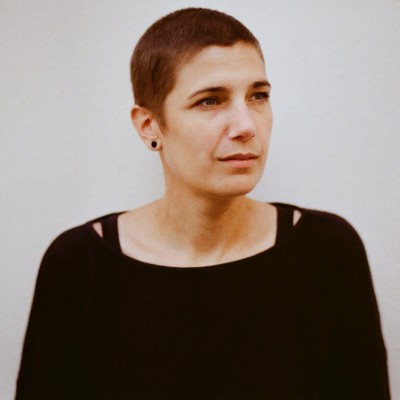
Dr Anneke Coppoolse
Researching Hong Kong’s alternative history
Born in a tiny village in the Netherlands, Dr Anneke Coppoolse grew up curious of the world and always planned to move out from her somewhat limiting environment.
She studied in several major cities of the Netherlands, including Rotterdam and Amsterdam, but didn’t stop there. She took the first chance to go overseas when she was about 25 and got an internship in the US. Later she worked in Singapore and taught in China, before coming to Hong Kong.
Today working as an assistant professor in the School of Design, The Hong Kong Polytechnic University (PolyU), she says the experience made her become more open towards differences in culture and made it easier for her to work with people from other cultural backgrounds.
“Coming to Hong Kong and being in cultural studies has shaped me and helped me reconsider my own position,” she says. As an exchange officer, which is also part of her job at PolyU, she encourages students to go out in the world and experience other settings.
Her interest in Hong Kong originated in her course work; she watched several Hong Kong films while studying media and culture for both her Bachelor’s and a Master’s degrees. When it came to doing a PhD, Lingnan was an easy choice.
“I liked the idea of a small, liberal arts university with a cultural studies department - it fit my background in media and culture studies well,” she says, adding that only later she discovered that this department was part of a great network of cultural studies scholars across Asia and some of its professors were members of the Inter-Asia Cultural Studies Society. The society organises biennial conferences, among other activities.
“Joining Lingnan ended up to be a good decision,” she sums up. “I was able to meet all these great professors and get an exposure to what was happening in Asia.”
Much we don’t want to acknowledge, waste plays a central role in our lives. Our societies struggle with the waste we produce and there is a considerable amount of research done on its composition, disposal, reduction, recycling, environmental impact and their health implications.
Doing her PhD in cultural studies, Coppoolse chose to research our modern society and its relation to waste as her object of focus. She says, “I particularly looked at how in a modern city waste is something unwanted. We don’t connect waste with modern life. We try to render it invisible, and still, it is very present and visible. I looked at the materiality and visuality of waste in the context of modern urban life in Hong Kong.”
She chose Mongkok and Central for her 1.3 years long ethnographic fieldwork where she talked to different types of waste collectors and covered recyclables, second hand markets and trash going to landfill. Her methods included observation, interviews and video-based participant contributions.
A second component of her study was talking to artists, who create art from objects that had at some point been made redundant. “They don’t see discarded materials as waste, they see abandoned, rejected objects as something they can work with. I spoke to different artists and analysed their work,” she explains.
Coppoolse continues with her research on abandoned and second-hand objects, visiting second-hand stalls and shops, to see what alternative histories they can provide her about Hong Kong. Another topic for her on-going research is the growing interest in alternative lifestyles, how people alter their lifestyles to become completely self-sufficient. Within that, she is looking at notions of community and the aspects of food production and education.
Coppoolse is happy with the way Lingnan’s Department of Cultural Studies guides PhD students. She says, “They organise master classes, seminar series with visiting professors and really try to give us a good postgraduate experience. We were also very close to our professors and the administrative staff. My supervisors were very accessible and always welcomed conversations.”
She appreciates everyone she has met during her time in the department, the interesting discussions their meetings allowed, as well as the opportunity to attend the Inter-Asia Cultural Studies conferences and related events that exposed her to diverse contexts and scholarship. “These were the highlight of my studies,” she says. “Some of us still attend the conference every time. I still attend some of the department’s local events and am also still in touch with some of my schoolmates.”

